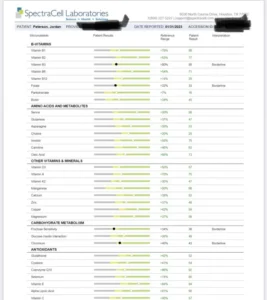This is a list of foods that I found irritated me the most to the least. If I’ve missed any foods, please comment. I know it comes off as a random/quack list of foods, but I’ve put some thought into it, and this is how my body has reacted.
Why Vegans Feel Better:
If you eliminate the first 3 on this list you should see quite an improvement.
This is part of the reason going vegan makes people feel so much better (depending on the person of course). The first three foods are really hard on people. Eliminating dairy can really help. Going vegetarian is probably the worst thing you can do, you end up eating grains and dairy and eliminating meat. Increase your consumption of soy to replace meat and you’re in even worse shape. Not a good idea. At least going vegan eliminates dairy. They just lump meat in there and end up getting rid of the safest food. So I understand people who have changed the way they ate, gone plant-based, and felt better. Hell, the people who go gluten-free vegan and limit their sugar intake have already eliminated the top three harmful foods. No wonder they feel better. Gluten and dairy and sugar are not good. But meat can’t be lumped in there just because it’s an animal product. People need it in order to really thrive.
If you eliminate the first 7, even better. I would say the first 12 items really bothered me, but not as bad as the first 7. Go all the way to greens and meat, even better, or even just meat.
Worst to Best
- Gluten-containing grains: wheat, rye, barley, spelt, kamut
- Dairy
- Cane Sugar
- Soy
- Citrus fruits
- Legumes (including peanuts) and bananas and melons
- Other grains – rice, quinoa
- Figs
- Canola oil
- Potatoes
- Almonds
- Green Cabbage
- Squash
- Grapes
- Pork
- Coffee
Less immune reactive (starting from most immune reactive to least)
- Plums
- Berries
- Peaches and nectarines
- Pears and apples
- Macadamia nuts (people seem to tolerate these better than other nuts)
- Avocado
- Red Cabbage
- Coconut flesh
- Black pepper
- Olives
- Greens – lettuce, arugula, spinach, collard greens, swiss chard
- Tea – peppermint and black
- Coconut oil and olive oil
- Fish
- Chicken
- Salt
- Beef
- Water
Other:
- I can tolerate the minerals they add to sparkling water (potassium citrate, etc.)
- I can take activated charcoal. I use this before I go to bed if I drink plus this.
- I can drink vodka and bourbon and not suffer for too long afterward. I’ll be a bit stiff, and have a hangover, but that’s about it. Other alcohols have additives I react to.





Mikayla,
I have been on a long journey of diet for about 10 years and have honed my understanding and knowledge to a great extent over the years and have some food for thought that you may find useful.
My IBS, depression, malaise and dermatitis started after a prolonged fight with tonsillitis. Be it the antibiotics or post reactive strep issue may never be known. I tend to believe i became sensitized to molds and fungus in the biome and i’m not talking about candida or common yeast.
I had my first break through with the fodmap diet about 10 years ago. I was so sick every day i could barely eat at all. When i did, i ate what is now clearly the worst foods i could have eaten High sugar foods so i could gets some calories in.
The fodmap diet was discovered by molash university where they studied the contents that were found in colostomy bags and deciphered essentially what compounds we do not digest as humans. These where dubbed fodmaps
Fermentable Oligosaccharides, Disaccharides, Monosaccharides and Polyols
This diet improved my symptoms greatly and gave me a new hope i had not had in years. I then found the specific carbohydrate diet which essentially is a ketogenic diet used historically for treating crohn’s and colitis. The main difference between the two is that the fodmaps allows bulk carbs such as potatoes rice corn and flours which is a hug mistake.
The specific carbohydrate diet does not consider the fact that many vegetables have large amounts of indigestible carbs.
They are both on to something but they are both missing something. That being the fodmap diet neglects the possibility that high doses of carbs regardless of the type may not be digested by the time they reach the colon which is most certainly the case especially with a damaged gut lining.
And the SCD diet neglects that some allowed fruits and vegetables are just as bad. and both diets neglect quantity to a large extent.
To complicated my issue I believe i am extremely reactive to mold. mold is a significant portion of the gut flora but rarely gets any mention. molds eat carbs as can be seen in moldy bread. It is the first to thrive. I think when i eat anything that feeds the molds i pay for it big time often for weeks.
Second when i eat foods made with molds such as real soya sauce, fermented foods like sour kraut, black tea, black pepper, olives etc i become extremely ill.
Many vegetables are moldy when you buy them. things such as greens, zucchini, tomatoes etc can have mold that cannot be seen so i take a risk every time i eat them. Tomates are easier to tell, zuchini can be deskinned but greens aren’t worth eating.
Broccoli is almost always moldy to some extent when purchased and frozen is actually the safest choice.
The point i am trying to make is that i don’t think that food antigens are necessarily your problem so much as the feeding of some constituent of your microbiome. The problem is that you will never know whether you are reacting to strep, mold, staph etc but a low carb diet simply does not feed any of them enough to create levels of toxins or antigens that you may have become sensitized too.
I have become more tolerant of more foods the longer i do this diet. but i have learned that the problem with people is the understanding of the reason that it works and this can cause a less educated approach to eliminating.
Low fodmap fruits and vegetables are a good start but must eaten in small amounts.
kiwi, broccoli, roma tomatoes, brussel spouts are my safest foods. boiling the vegetables (not tomatoes) is key as well to there complete digestion.
acorn squash and zucchini cooked well are also well tolerated. don’t cook them enough and i pay for it.
I can have beef, pork, chicken, lamb eggs and basically any meat that’s not preserved or processed.
Hard aged cheeses only. no lactose whatsoever but i can have aged cheddar and swiss to my hearts content.
I think being in ketogenesis helps not only because the ketones have so many benefits but because your tissue glucose levels remain lower so tonsils and gut lumina etc have less available glucose for a bacteria to feed off should they take root. this is simply a theory but i think has some merit.
Anyways I share this in the hopes that you can expand your diet a little bit to get some vitamins and minerals that may not be available in meats only. Kiwi would be what i recommend to try first and is the poster fruit of the fodmap diet and not by coincidence.
One last piece of anecdotal evidence was i went on a elemental diet for several weeks. This is a zero allergen powder that can reverse crohn’s colitis and several other ailments of the digestional track and immune related problems. The powder is essential amino acids and glucose and the one i tried was called vivonex.
Glucose is supposed to be so easily digested that it disappears in the duodenum almost. This should not cause any gastrointestinal problems whatsoever but for me it did. I have to think there is no way in a 500ml thick shake that some glucose did make it to my colon because my symptoms did not improve at all which was extremely disturbing at the time. zero antigens, full symptoms. That’s when i became quite positive the antigens where from the gut biome not the food itself and i started my super low carb journey to amazing success.
Anyways hope some of this helps somebody.
I just gasped! Casually reading the list, and was surprised to see FIGS high on your list. I have always had slight reactions (mouth itchiness) to many fruits, including melons and bananas which are also high on your list…but figs were the first food to put me in PAIN. I almost made my husband take me to the hospital. It wasn’t the first time I had eaten them, but maybe the fifth or sixth time? Since then, I have eaten them accidentally in a Luna bar and the pain in my stomach came back. I wonder what it is about certain fruits?
“People need it in order to really thrive.”
To what extent are you competent in nutritional science to be able to claim such a thing? Could you give us studies showing that “people need meat”? Has not your life experience taught you that the diet / allergies thing rather vary by individuals? How about 500 million Indian vegetarians?
https://www.ncbi.nlm.nih.gov/pubmed/19562864/
P.S. I assume that you rely on something more than your personal anecdotal experience.
Leave a comment